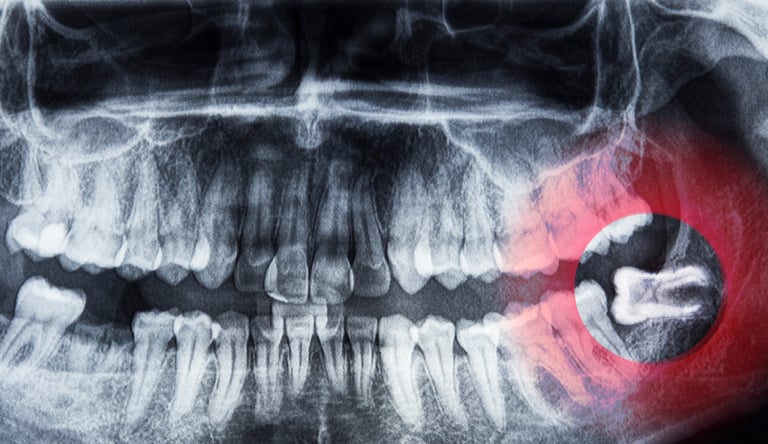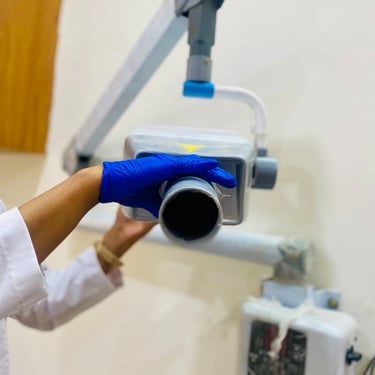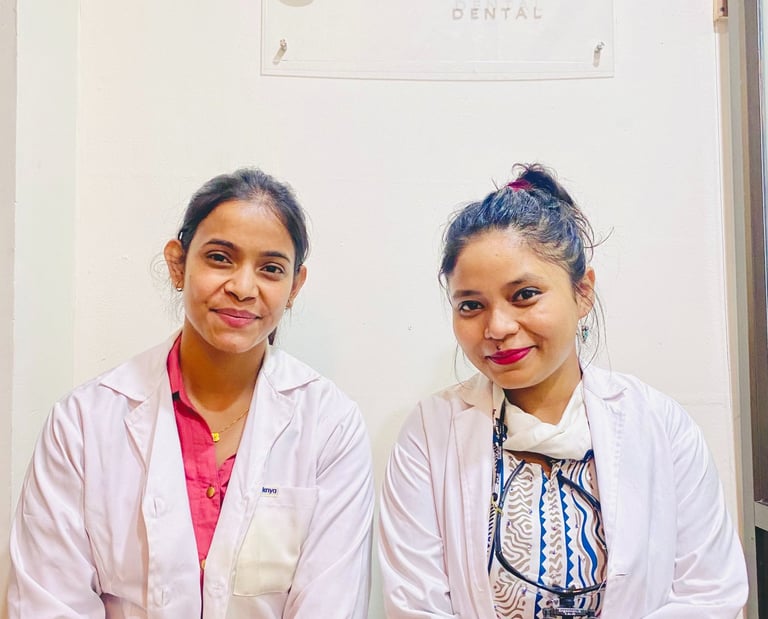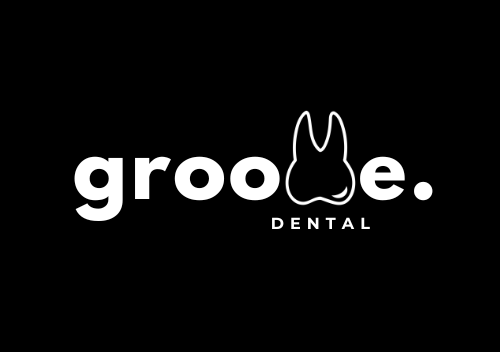Dental Issue? Call +91-97290 23858/+91-87210 11050


Oral Surgery is a specialized branch of dentistry that focuses on surgical procedures to treat complex oral health conditions. It involves diagnosing and surgically addressing issues affecting the teeth, gums, jawbone, and facial structure. Unlike general dentistry, oral surgery is designed to resolve problems that require advanced intervention beyond routine treatments.
Whether it’s a complicated tooth extraction, treating injuries to the oral and facial regions, or improving jaw alignment, oral surgery offers solutions that restore functionality, health, and aesthetics. With advancements in technology and technique, many oral surgeries are now minimally invasive, ensuring reduced discomfort and faster recovery times.
Oral and Maxillofacial Surgery
What Does an Oral Surgeon Do?
Oral surgeons, also known as oral and maxillofacial surgeons, are highly trained specialists who address a wide range of surgical needs related to oral and facial structures. They undergo years of additional education and hands-on training after dental school to become experts in both minor and major oral surgeries.
Here’s what oral surgeons commonly do:
Wisdom Tooth Removal: Extracting partially erupted or impacted wisdom teeth that can cause pain, infections, or crowding.
Dental Implants: Surgically placing titanium posts to replace missing teeth and restore functionality.
Jaw Surgery (Orthognathic Surgery): Correcting irregularities of the jawbones to improve alignment and resolve issues like difficulty chewing or sleep apnea.
Bone Grafting: Preparing the jawbone for dental implants by addressing bone loss due to injury, disease, or missing teeth.
Facial Trauma Repair: Treating facial injuries like fractured jaws or broken teeth caused by accidents.
TMJ (Temporomandibular Joint) Surgery: Addressing disorders affecting the jaw joint and surrounding tissue to alleviate pain and improve movement.
Oral surgeons work closely with general dentists, orthodontists, and other dental specialists to ensure comprehensive care and successful outcomes for patients.




Common Oral Surgery Procedures We Offer at Groove Dental
1. Wisdom Tooth Removal
The third molars, commonly known as wisdom teeth, often don’t have enough room to erupt properly. This can lead to crowding, infections, or pain. Our oral surgeons safely remove impacted or partially erupted wisdom teeth, preventing complications and ensuring a smooth recovery.
2. Dental Implants
Dental implants are a permanent solution for replacing missing teeth. During the procedure, titanium posts are surgically placed into your jawbone to act as artificial tooth roots. Over time, they fuse with the bone, providing a sturdy foundation for crowns, bridges, or dentures.
3. Bone Grafting
Bone grafting is essential for patients who have experienced bone loss due to gum disease, injury, or long-term tooth loss. This procedure restores bone density in areas where implants are needed, ensuring stability and long-term success.
4. Tooth Extractions
While general dentists perform most routine extractions, oral surgeons handle complex cases involving impacted, broken, or severely damaged teeth. Our expertise ensures that even complicated extractions are performed safely and efficiently.
5. TMJ Surgery
TMJ disorders can cause persistent pain, difficulty chewing, and jaw stiffness. For severe cases that don’t respond to conservative treatments, our surgeons perform surgical interventions to relieve discomfort and restore jaw function.
6. Orthognathic (Jaw) Surgery
Jaw surgery corrects misaligned jaws, facial irregularities, and bite problems. This procedure not only improves functionality but also enhances facial balance and symmetry, contributing to both oral and overall health.
When Should You See an Oral Surgeon?
Certain dental and facial issues go beyond the expertise of a general dentist and require the specialized skills of an oral surgeon.
Here are some signs and situations when you should consider seeing an oral surgeon:
Impacted Teeth: Wisdom teeth or other teeth that are trapped below the gumline or misaligned.
Severe Jaw Pain or TMJ Symptoms: Persistent discomfort or clicking sounds when moving your jaw.
Missing Teeth: Preparing for dental implants or exploring other options to replace teeth.
Facial Swelling or Infection: Signs of an abscess or infection in the jawbone or soft tissues of the mouth.
Preparation for Dentures or Orthodontics: Addressing underlying issues, such as jawbone irregularities, before fitting prosthetics.
Trauma or Injury: Restoring teeth, bone, or soft tissues after an accident.
Preventive Attention: If left untreated, many of these conditions can worsen, leading to more pain or long-term complications. Early intervention by an oral surgeon ensures better outcomes and faster recovery.


FAQs
Q1. Is oral surgery painful?
A: Thanks to modern anesthesia and sedation techniques, most oral surgery procedures are virtually painless. You may experience some discomfort during recovery, which can be managed with prescribed medications and home care.
Q2. How long is the recovery time?
A: Recovery time varies depending on the procedure. Simple tooth extractions may take a few days to heal, while more complex surgeries, like jaw surgery or implants, can take several weeks. Your surgeon will provide specific aftercare instructions to ensure a smooth recovery.
Q3. Will I need sedation for my procedure?
A: Sedation is often recommended for oral surgeries to ensure patient comfort. Options range from local anesthesia to IV sedation, depending on the complexity of the procedure and your personal preference.
Q4. How much does oral surgery cost?
A: Costs depend on the type of procedure, materials used, and complexity of the case. We’ll provide a detailed estimate during your consultation and can assist with insurance claims to maximize your coverage.
Q5. What should I eat after oral surgery?
A: Stick to soft foods, like mashed potatoes, yogurt, and soup, for the first few days. Avoid crunchy, spicy, or hot foods that could irritate the surgical site.
Q6. Are there risks involved?
A: Like any surgical procedure, oral surgery carries some risks, such as infection or prolonged bleeding. However, these risks are minimal and can be significantly reduced by following your surgeon’s aftercare instructions.
Your Oral Health Journey Starts Here
When it comes to maintaining a healthy smile, understanding the different branches of dentistry is a great first step. If you’re curious about the best care for your unique situation, don’t hesitate to consult your dentist. They can guide you toward the specialized treatments you need to achieve lifelong oral health and confidence.
Take charge of your oral health today—schedule your next dental checkup and discover how modern dentistry can work for you!
How to Choose the Right Dental Treatment for You?
With so many types of dentistry available, it’s natural to wonder which one is right for you.
The good news is that you don’t have to figure it out alone. Regular visits to best dentist near you will help keep tabs on your oral health, and they’ll point you toward a specialist if needed. Whether it’s orthodontics for straighter teeth, endodontics for a root canal, or cosmetic dentistry for a smile upgrade, there’s a dental professional ready to meet your specific needs.


Location: 7, Hengrabari Road, Near L. P. School, Lichubagan, Hengrabari, Guwahati, Assam, 781036
Book An Appointment
Call: Dr. Liza Baruah +91 97290 23858 / Dr. Sunayana Dutta +91 87210 11050
Email: groove.dental25@gmail.com
Copyright ©2025, Groove Dental Care & Implant Centre. Best Dentist in Guwahati for Kids and Adults. All Rights Reserved.
